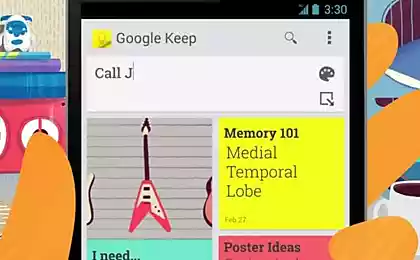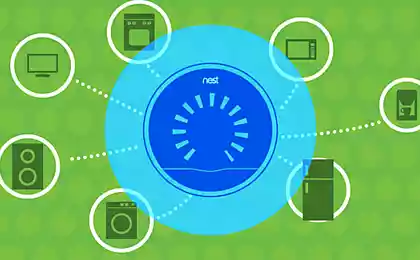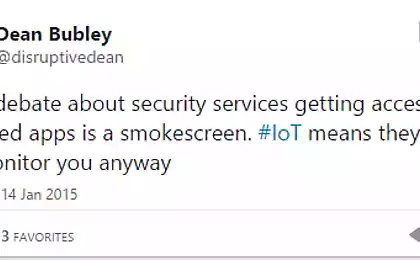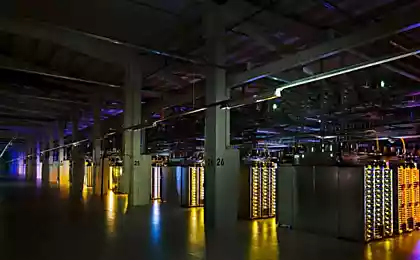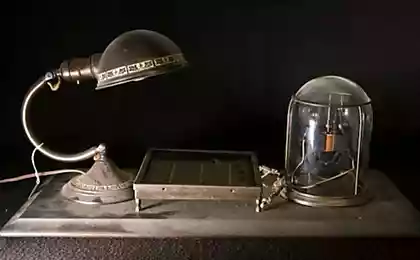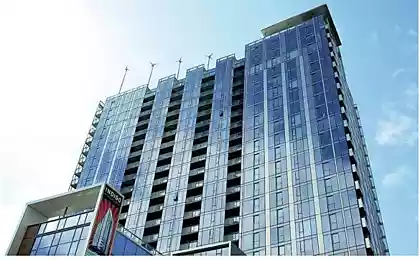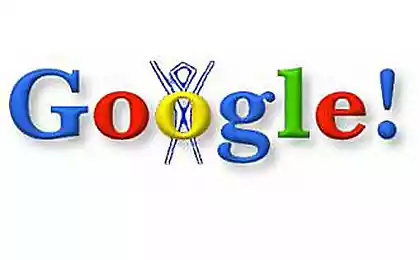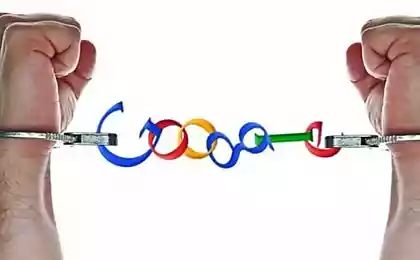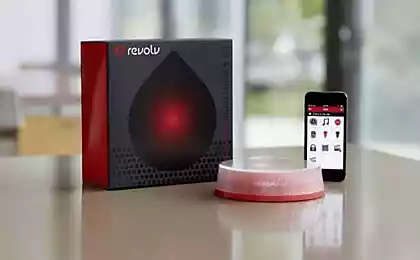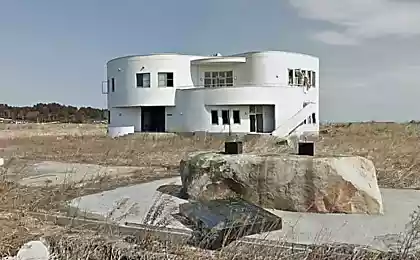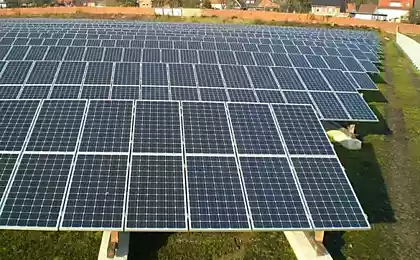Scientists from the US are taught at home to talk to the power grids
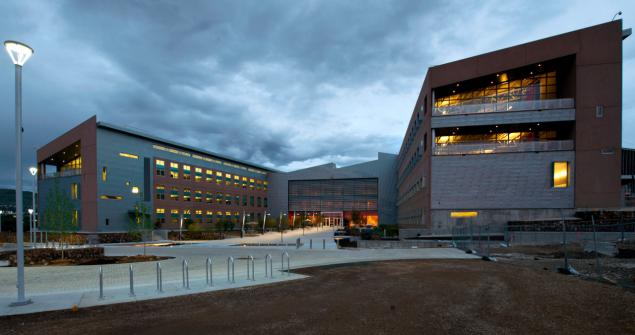
The National Research Institute of Renewable Energy (NREL) at the US Department of Energy, which is located in Golden, Colorado, our future are very peculiar. According to scientists working there, humanity does not necessarily seek to meet the open space and the swarming black holes in it or build undersea cities, stretching for hundreds of meters into the depths of the ocean. Much more reasonable to make our homes and appliances in them communicate with each other.
Imagine how solar panels that you have installed on the roof of the house, "read" on the website of the weather forecast that today is expected to warm and sunny weather, and realized that it is possible to work out a lot of electricity. Take a look at the screen of your smartphone - already there is a message from your smart home with a proposal to urgently start the washing machine and dishwasher. In doing so, you can be at work or somewhere else outside the home. Your home physical presence is not necessary. Your consent to the execution of the program (and even then not always) it would be sufficient. And when he returns, dishes will be done and wash clothes thanks to the coordinated work of intelligent systems, to draw correct conclusions while interacting with each other and the outside world, and properly dispose of accumulated resources.
And in order to turn your imagination into reality, in the NREL already started testing the first version of such "sociable" houses. However, the goal of scientists in the field of noble - to maximize the possibilities of using renewable energy and reduce the load on the electricity network for general use.
Today the building, running on solar energy work on the electrical networks on the basis of rechargeable batteries. When there is an opportunity to accumulate energy from the sun, solar panels accumulate it, producing electricity applicable in everyday life. They are even able to give the surplus accumulated in the overall network. And when there is no sun, the house begins to eat as usual, of the total urban system power.
When such houses in the area a bit, there is nothing to worry about. But if you think about the future, which as we know every house or industrial facility will be equipped with a solar panel or wind generator, the above scenario may become a huge problem. Constant reference to a common multiple of electricity infrastructure will create instability in the entire system, designed for a balance of incoming and outgoing power.
Smart home can reduce these pressures through effective energy management. And this, in turn, will pay more attention to renewable energy and environmentally friendly technologies.
Improving the energy efficiency of homes plays a key role in reducing the negative impact on the climate & quot ;, says Dane Christensen (Dane Christensen), a senior project engineer NREL. "Now it is the share of residential buildings and industrial facilities account for the bulk gas emissions leading to global warming. Even transport damages not so much. And we intend to remedy this situation. Blockquote>
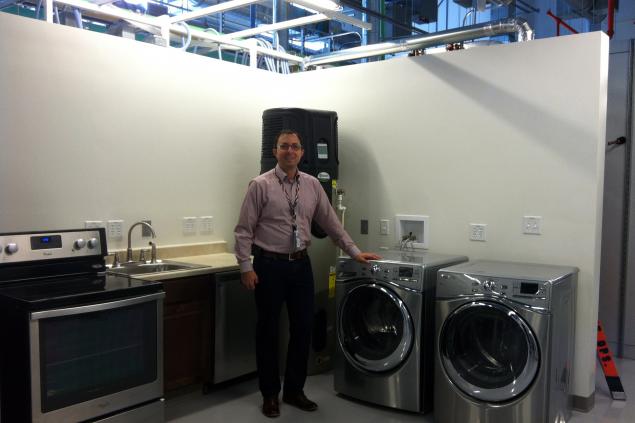
Laboratory Institute reminds Alibaba cave, only to weave wires and pipes on the ceiling and closely standing appliances instead of mountains of gold and precious stones. There are refrigerators, dishwashers, washing machines, water heaters, dryers, room is equipped with a lighting control system and air conditioning. All of these devices and systems are the main consumers of electricity in any home.
"Test site & quot; Project consists of three houses with varying degrees of "umnosti" systems, which it is equipped. This is to ensure that the same external conditions, engineers and scientists can simulate various scenarios: August heat or solar noon Houston Colorado, for example. Real-time project participants can see what changes, if put in the homes of different programs conditioning control or the owners of electric cars in large quantities and at the same time decide to put on their iron horses charging.
Scientists hope one day all the appliances in the house will communicate with each other, "negotiating" the most efficient power consumption. And, more importantly, the houses begin to communicate with each other. This "communication" is already under way in between them, but in a very modest scale. To bring this communication to the next level, you need to change people's minds. And this is already happening.
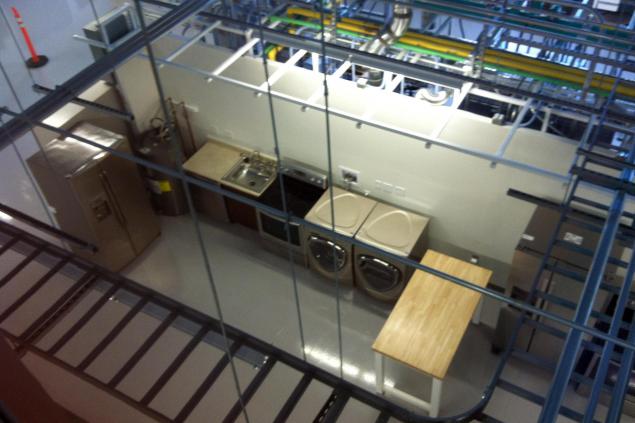
Xcel Energy Company of the same Colorado offers its customers participate in the program «Saver's Switch» ( approx. Trans. From English. "The switch to Lean» - Alyery i>). Buyers installed in their homes a special device that occasionally turns on and off air conditioners, thus reducing the load on the power on hot days. As a reward for thrift participants in the program were obtained from 40 dollars to pay electricity bills. A similar program operates and municipal enterprise Fort Collins.
Recent high-profile purchase of Google company for the production of smart thermostats Nest also drew attention to the topic of energy efficiency. People are starting to think more and more that a good idea would be wise to approach the issue of the flow of heat, water and electricity.
However, do not think that buying a washing machine with the latest high-class energy savings from a reputable manufacturer and a pair of three-tech novelties from loudly declares itself startups are able by themselves to change our consumer habits and reduce your utility bills.
The main weak link in the chain of the new responsible attitude to resources consumed - is the complexity of the integration of different devices and systems together. There is nothing really worth to buy smart devices 20 and 20 smart apps for your smartphone, & quot; reflects Bryan Hannegan, deputy director of the project. "Great benefits it will bring to you or others. It is important to interconnect all of the equations and the large-scale application practices. Blockquote>
Large companies and industries are increasingly adopting automation system, allowing to regulate the consumption of resources and get a discount from the state electricity and water supply. It is logical to transfer this practice to the whole of society. And there is hope that this will happen soon enough. In Fort Collins expect to take this step in the spring of next year. ( In Moscow also operate day and night tariffs for electricity - approx. Lane. I>) And for 5 years, it can be a major technological trends in the United States.
Based on: www.kunc.org/post/colorado-lab-tests-smart-home-where-dishwashers-talk-grid
Source: geektimes.ru/post/242138/





